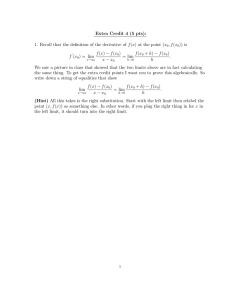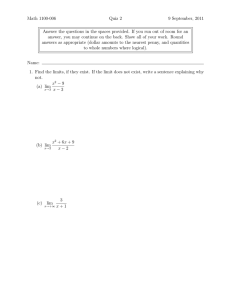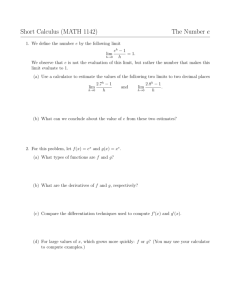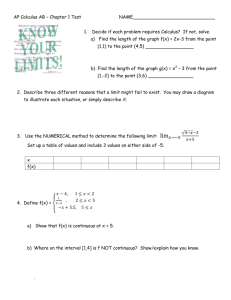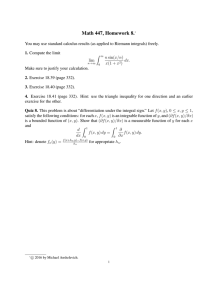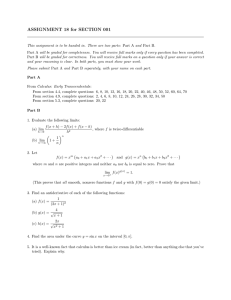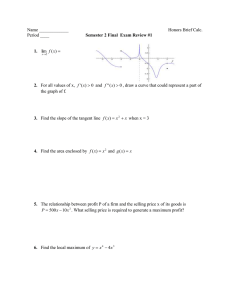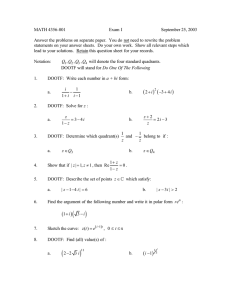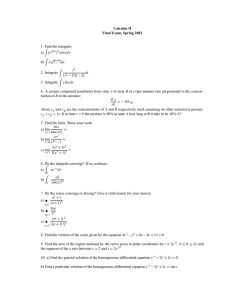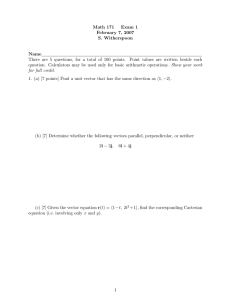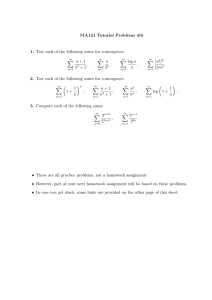Question 5.3 #66. Evaluate the limit by first recognizing the sum as a
advertisement
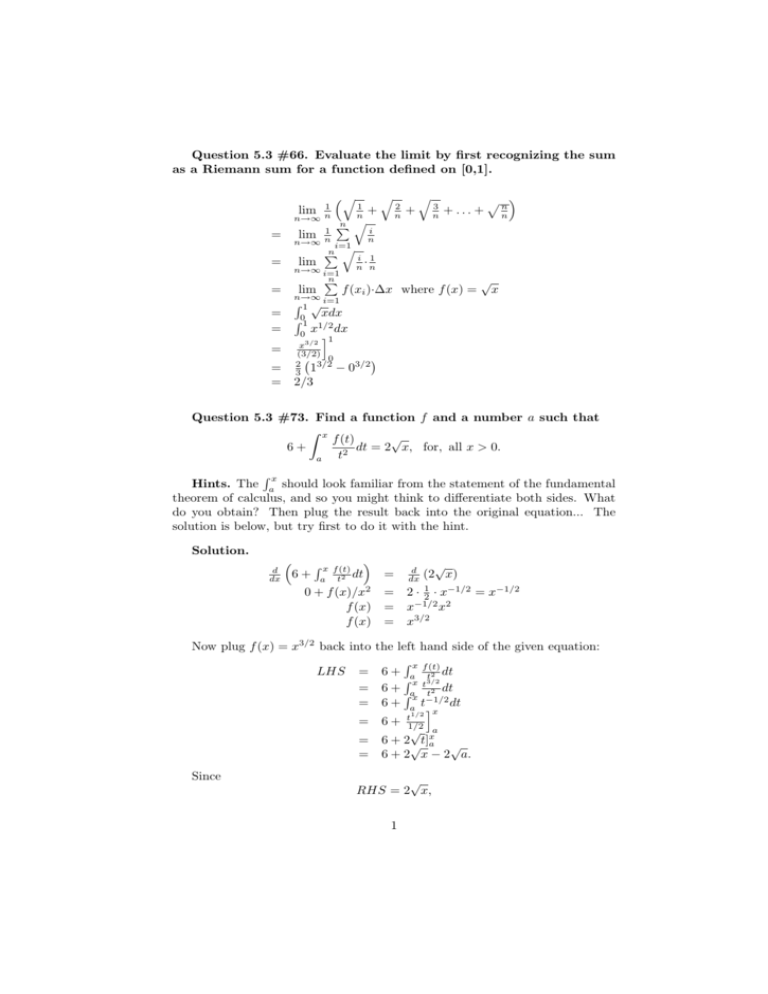
Question 5.3 #66. Evaluate the limit by first recognizing the sum as a Riemann sum for a function defined on [0,1]. 1 n→∞ n lim q 1 n + q 2 n n q P i lim n1 n n→∞ i=1 n q P i 1 lim n·n n→∞ i=1 n P = = = lim f (xi )·∆x n→∞ i=1 R1√ xdx R01 1/2 x dx 0 i1 x3/2 (3/2) 0 2 3/2 − 03/2 3 1 = = = + q 3 n + ... + where f (x) = pn √ n x = = 2/3 Question 5.3 #73. Find a function f and a number a such that Z x √ f (t) dt = 2 x, for, all x > 0. 6+ 2 t a Rx Hints. The a should look familiar from the statement of the fundamental theorem of calculus, and so you might think to differentiate both sides. What do you obtain? Then plug the result back into the original equation... The solution is below, but try first to do it with the hint. Solution. d dx 6+ Rx f (t) dt a t2 = d dx √ (2 x) 0 + f (x)/x2 = 2 · 21 · x−1/2 = x−1/2 f (x) = x−1/2 x2 f (x) = x3/2 Now plug f (x) = x3/2 back into the left hand side of the given equation: Rx LHS = 6 + a ft(t) 2 dt R x t3/2 = 6 + Ra t2 dt x = 6 + a t−1/2 i dt 1/2 x t = 6 + 1/2 √ a = 6 + 2√t]xa √ = 6 + 2 x − 2 a. Since √ RHS = 2 x, 1 we have √ √ 6 + 2 x − 2√ a 6−2 a √6 a a 2 = = = = = √ 2 x 0√ 2 a 3 9.
